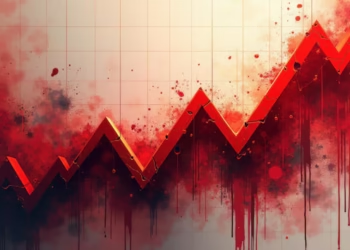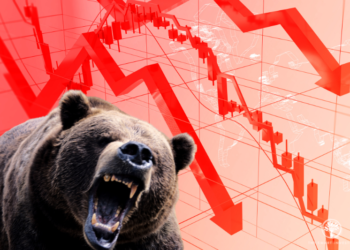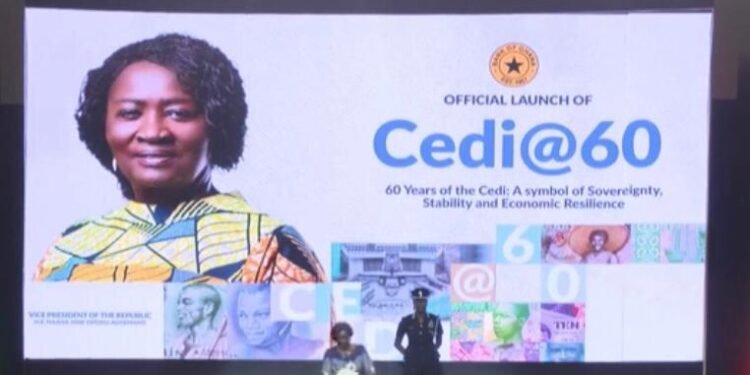The Ghana Stock Exchange (GSE) is buzzing with energy as trading activity surged dramatically, signaling a renewed wave of investor confidence in the local equities market.
At the close of Tuesday’s trading session, the GSE recorded an impressive 9,900,858 shares traded, amounting to a total market value of GHS 46,064,917.13. This performance represents a 213% surge in trading volume and an 18% increase in turnover compared to the previous trading day on Monday, October 6.
This explosive performance reflects the growing investor optimism surrounding Ghana’s financial and corporate landscape, particularly within the banking sector, which continues to anchor the market’s bullish momentum.
Banking Stocks Lead the Charge
Banking equities once again stole the spotlight on the trading floor. Ecobank Ghana and CalBank were the two standout gainers of the day, both delivering stellar performances that lifted the entire market.
Ecobank Ghana’s stock price jumped 6.06%, while CalBank posted a solid 1.39% gain — reinforcing investor confidence in the financial sector’s stability and earnings potential.
CalBank also emerged as the day’s volume leader, trading a whopping 6.21 million shares, demonstrating strong investor interest in the stock. It was followed by GCB Bank, which traded 2.51 million shares, while MTN Ghana and Ecobank Transnational Incorporated (ETI) recorded 641,396 and 391,725 traded shares respectively.
The dominance of financial sector equities underscores their influence in driving the GSE’s overall performance. Investors continue to gravitate toward banking stocks, drawn by strong fundamentals, impressive earnings reports, and renewed optimism in Ghana’s post-stabilization macroeconomic outlook.
Market Indices Continue Upward Momentum
The bullish momentum on the GSE extended beyond individual equities to the broader market indices. The GSE Composite Index (GSE-CI) climbed 21.69 points, representing a 0.26% increase, to close at 8,443.88 points. This modest daily rise contributed to an impressive 1-week gain of 3.37%, a 4-week gain of 17.73%, and a year-to-date gain of 72.73% — positioning the Ghanaian stock market as one of Africa’s best-performing bourses in 2025.
Similarly, the GSE Financial Stocks Index (GSE-FSI) advanced by 0.78% to close at 3,927.72 points. This marks a 1-week gain of 3.38%, a 4-week gain of 14.04%, and an impressive year-to-date appreciation of 64.98%. The strong showing of the GSE-FSI further cements the dominant role of the financial sector in sustaining the market’s upward trajectory.
With the recent surge in trading activity and positive price movements, the market capitalization of the Ghana Stock Exchange rose to GHS 166.2 billion. This remarkable achievement signals growing depth and value within the market, as local and foreign investors continue to increase their equity exposure.
Market analysts attribute this sustained growth to a combination of factors, including improved investor sentiment following stable macroeconomic indicators, a gradual easing of inflationary pressures, and Ghana’s improving sovereign risk outlook. The banking sector’s strong financial results, supported by prudent management and digital innovation, have also played a key role in attracting investor attention.
Investor Sentiment Turns Bullish
The latest data from the GSE paints a picture of renewed confidence among investors. The absence of any losing stocks during the session — with two gainers and no decliners — highlights the strength of market sentiment and the dominance of bullish activity.
Market watchers believe this positive trend could continue into the final quarter of 2025, as listed companies report stronger financials and dividend payouts. Additionally, the stable performance of the cedi and continued monetary policy support from the Bank of Ghana are contributing to a favorable investment climate.
A local market analyst remarked, “The Ghana Stock Exchange has shown resilience and growth potential that rivals several African peers. The continued interest in financial stocks, coupled with improved liquidity, is a sign of deepening investor participation and confidence in Ghana’s capital markets.”
In the intervening time, the GSE’s challenge will be to sustain this momentum through broader sector participation. While the banking and telecom sectors remain the dominant drivers, increased activity in manufacturing, energy, and consumer goods could further strengthen the market’s resilience.
Analysts expect continued upward movement in both the GSE-CI and GSE-FSI, buoyed by positive earnings forecasts, stable inflation, and growing retail investor participation. The ongoing digital transformation of the GSE, including mobile-based trading platforms, is also expected to attract younger investors and improve market accessibility.
The market’s performance has not gone unnoticed regionally. Ghana’s strong year-to-date return of over 72% places it among the top-performing African exchanges, signaling a potential inflow of foreign capital in the coming months.























